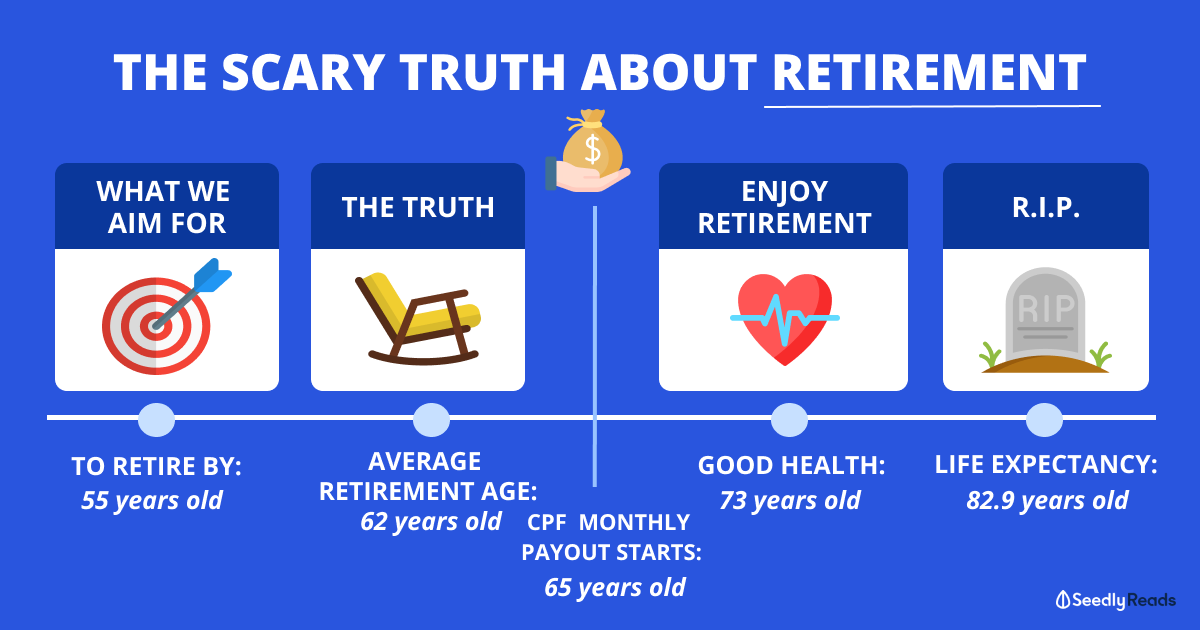Advertisement
Anonymous
Is retiring in Thailand a viable option for most Singaporeans?
What would be the rough costs of doing this?
6
Discussion (6)
Learn how to style your text
Reply
Save
Kenneth Fong
26 Feb 2020
Marketing Manager at Seedly
Hi Anonymous,
I'd say it is. But here're a couple of things you might want to think about.
I've personally worked and stayed in Thailand, Pathum Thani (about 40mins drive north of Mochit aka where JJ Market is) specifically for 6 months, and I have thought of retiring there too.
The climate is pretty similar, but they do have slightly colder winters if you live up north.
Food-wise, it's pretty agreeable because you're still in South East Asia (I'm presuming you're Singaporean). And if you're happy with street food or the small Mom & Pop, hole-in-a-wall eateries you can find almost everywhere, they're cheap and decent too. A meal (rice with meat and some veggies) will probably cost you SGD$2 to SGD$3, or even less - depends on which province you're in, big cities will charge more.
I can't say much about healthcare, but you might want to check if foreigners have to pay more if they seek treatment at clinics or the A&E. This is extremely important as you'll be retiring there in your golden years, and the last thing you want is to (touch wood) go to a hospital after you fall in your bathroom and be charged a ridiculous amount of money for an X-ray and a plaster cast.
If you're planning to have children, the best university there is probably Chulalongkorn University in Bangkok. But the more affluent locals (mostly Thai-Chinese) usually send their kids overseas. At least that's what I noticed since most of my Thai colleagues have degrees from all over the world, while local grads are far and few - in case you're wondering, I was working in the National Science and Technology Development Agency (like an A*STAR of sorts for Thailand).
So that means that you'll need to factor additional costs to send your kid to local, international schools in preparation for higher education. Or be prepared to send them overseas for their education from the get-go, which also means you'll need to take care of their tuition fees, boarding, and lodging (read: not cheap).
Local transportation is cheap if you travel by bus, tuk-tuk, MRT, boat, motorcycle. And it's not too bad either if you decide to buy and own a car. Most of my colleagues still take public transportation because traffic is usually bad - yes, even in the small towns because some of the roads aren't as wide as SG - and are the worst in big cities.
Finally, since you're looking at retiring, you'll probably want to learn more about Thailand's retirement visa.

In a nutshell, you'll be applying for the Non-Immigrant O-A Visa (Long Stay/Retirement) visa which is renewable every year.
But the catch here is that you'll have to be 50 years or older to apply for this visa.
Here are some other conditions you'll need to meet:
A minimum of THB800,000 in a Thai bank account for 2 months prior to visa application
A minimum of THB65,000 monthly income (can combine with assets in Thai bank account to meet that min THB800,000 requirement)
Oh, and you'll need to report to Immigration every 90 days to verify your current address. Yes, I know. It's a hassle, but those are the rules if you wanna retire there.
If you're thinking about retiring overseas, I've written an article on Retirement Visas to other places around the world. Feel free to check it out if you'd like to keep your options open!
Good luck with your retirement dreams and start planning now if it's your ultimate goal!
Reply
Save
Yes, I stayed in Thailand for a couple of months during my exchange and the cost of living can be mu...
Read 4 other comments with a Seedly account
You will also enjoy exclusive benefits and get access to members only features.
Sign up or login with an email here
Write your thoughts
Related Articles
Related Posts
Related Posts
Advertisement








Your best bet is to do research, fly to Thailand and to the place you intend to retire at and stay there for a month. Try it out first before going all in.